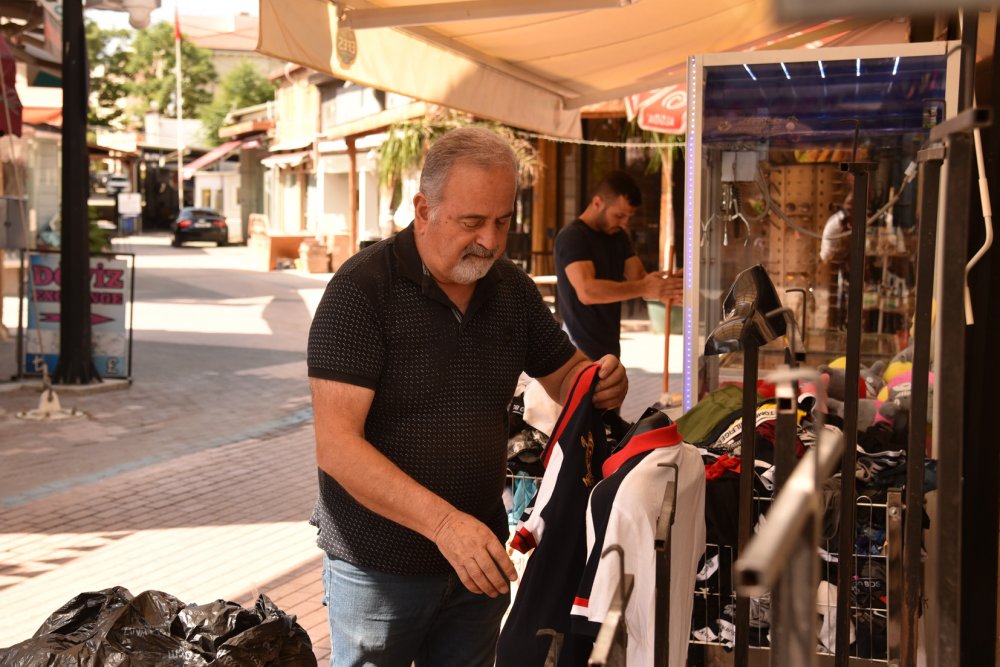The tumbling Turkish Lira is taking the Turkish Cypriot economy along with it, as the community sees inflation send prices for essential goods through the roof.
The Lira has been breaking unwanted records. Turkey’s President Recep Tayyip Erdogan is adamant about “fighting the war on interest rates to the end”, exerting pressure on central bankers to cut interest rates.
With the Lira trading at its lowest ebb on Thursday at 13.83 to the euro, the currency has lost 22% of its value since the end of 2020 and is 94% weaker than at the end of July 2018—just before the first sharp depreciation in the Lira’s history.
This has put immense pressure on the Turkish Cypriot economy, which crashed under the collapse of the Lira, with food-price inflation reaching 37.4% in September.
According to Sapienta Economics latest review of the north’s economy: “The weakening Turkish Lira, combined with high energy costs, is having a strong impact on prices in northern Cyprus, particularly for staple items.
“While overall consumer price inflation rose by 25.9% year on year in September, food prices rose by 37.4%, transport prices by 36.1% and prices of health products by 34.2%.
“The highest increase was recorded for what one might call discretionary goods, namely furnishings and other household equipment, where prices rose by 43.8%”.
Economist Mertkan Hamit told the Financial Mirror that Turkish Cypriots are in for a rough ride.
Despite sharing the same currency as Turkey, Turkish Cypriots will have a harder time as they struggle with ever-growing inflation due to their inability to adopt fiscal measures.
“One of the fundamental reasons why Turkish Cypriots are feeling this crisis much more than in Turkey is because of the economic conditions that we have.
“Since we all know that the Turkish Cypriot side has restrictive economic engagement with the rest of the world, economic isolation to export goods created an economy that entirely relies on imports,” said Hamit.
“That being the case and since the trade is in dollars and the economy of the community is dependent on imports, the prices of daily goods are constantly rising. This triggers inflation.”
He said that borrowing in the Turkish Cypriot community is also mostly conducted in a foreign currency.
“Because investments such as buying a home or a car are of high value, banking institutions do not trust the Turkish lira, so lending agreements are carried out in British Pounds, dollars or euros”.
Borrowing is not done in the currency of the market.
A rapid rise in the value of the euro or the dollar means debtors are having difficulty paying their loans, as their earnings are denominated in the local currency, the TRY.
“Those who work with a waged salary in Turkish lira, paying loans in foreign currency for their flat or their car; they are facing enormous problems.”
Rich-poor divide
At the same time, the gap between the rich and the poor in society is widening.
“I think this creates conditions that redistribute the wealth and as a result, the rich get much wealthier while most of the middle – low-income groups face the risk of poverty.”
In comments to Turkish Cypriot daily YeniDuzen, economist Mustafa Besim noted that 37% of loans taken out by Turkish Cypriots are denominated in a foreign currency.
He argued that the north’s central bank and the banks association should sit down to review and restructure loans taken out in a foreign currency.
Emphasising the importance of working out the appropriate interest rate for converting foreign currency debts to Turkish Lira, Besim noted that public resources would be needed.
“We are in a monetary union with the Republic of Turkey, but there is no support for redressing the grievances caused by depreciation and inflation.
“There should be a direct policy on this issue.”
Besim said that many companies have started to sell their products in foreign currency.
“Companies buy products in a foreign currency even when they buy from Turkey.
“Their argument is why should they sell their products in a currency other than the one they bought them in. It’s normal for them to think this way”.
In the north, there is a discussion over whether the Turkish Cypriot economy could detach itself from the Turkish Lira and adopt the euro.
Economists argue a transition to the euro would be technically possible, but a political decision should be taken.
Stating that 60% of Turkish Cypriot deposits are in foreign currency, Besim said: “The only one that does not accept foreign currency is the public sector.”
He argued there is no need to get permission from anywhere in the transition to the euro.
Hamit said the three leading sectors – property, higher education, and tourism – already use the euro.
“The important question is about the political will which would require financial assistance from Turkey to be in euros as well.”
He said adopting the euro is one of the talking points of the pro-reunification camp.
Continuous pressure brought on by the collapse of the Lira in the north will leave its mark on the Turkish Cypriot political scene, especially with a general election in January.
“I am expecting long term impacts over the politics and the relationship with Turkey.
“If Turkey pursues its economic agenda, further polarisation between the ordinary people and the ruling parties will emerge.
“In the north, we will have a general election in late January 2022.
“I expect as a first reaction voters will possibly abstain.
“But this will still deepen the polarisation in the Turkish Cypriot political scene.”










